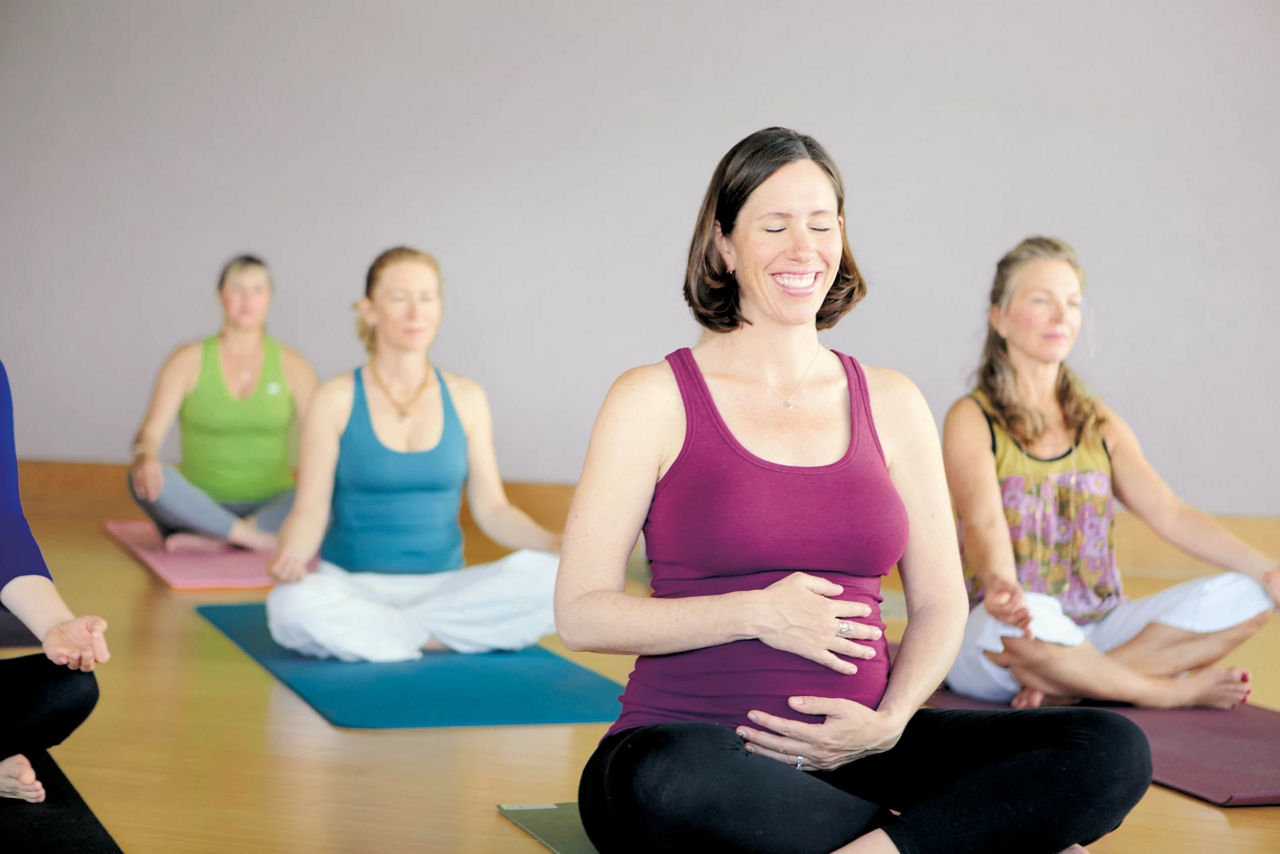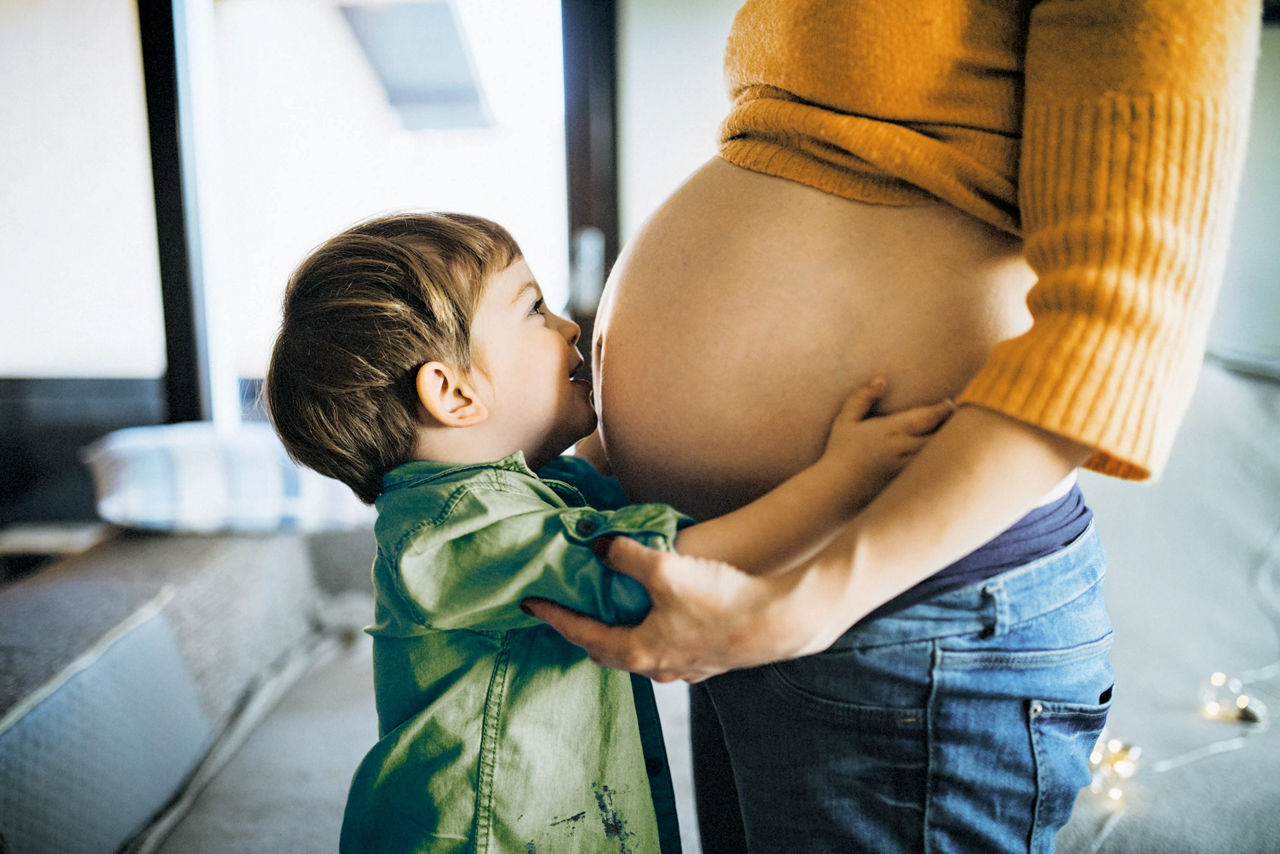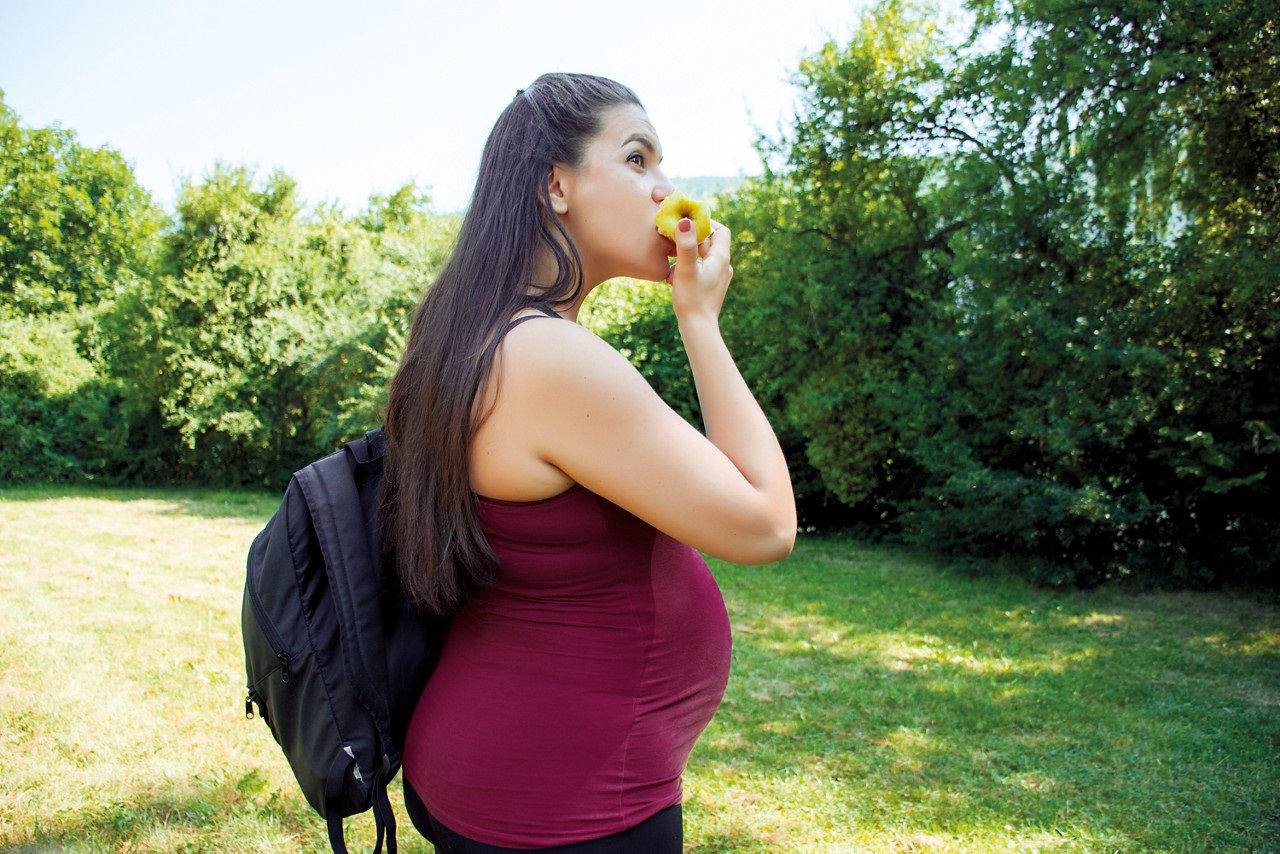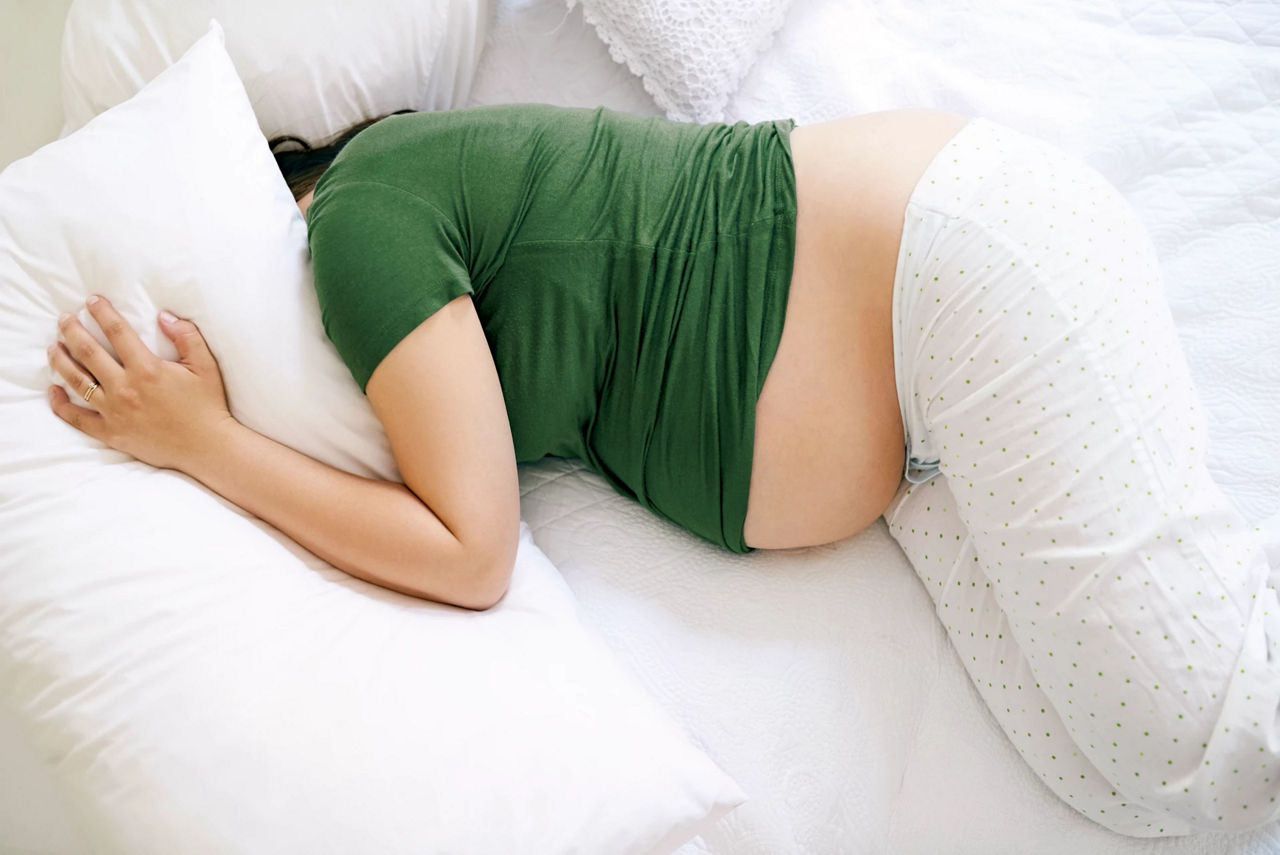Free weaning plan - Register here
Now that you’re eating for two, healthy eating has never been more important. What you put in your body is feeding both you and your growing baby. However, eating better doesn’t necessarily mean eating more. Although you may be tempted to eat that second serving of chocolate cake, it’s important to remember you are eating for your baby not another full-size adult! Choose quality over quantity!
Dietary Checklist for Mums-to-be
- Folic acid supplement (400 µg/d) — 4 weeks prior to & for the first 12 weeks of pregnancy
- Vitamin D supplement (5 µg/d)
- 4-5 portions (for active women) or 3-4 portions (for less active women) per day of wholegrain cereals, breads, and potatoes
- 5+ portions of fruit and vegetables per day
- 3 portions of low fat dairy foods per day (e.g. low fat/semi skimmed milk, cheese and yoghurt)
- 2 portions of meat, fish, or meat alternatives (e.g. lentil, beans, eggs) per day
- Limit sweets, salty snacks and sugary drinks to an occasional treat (1-2 times per week)
- Oily fish (salmon, trout, herring, mackerel) 1-2 times per week. They are a great source of omega 3 and vitamin D
- At least 8 glasses (2L) water per day
Take regular light exercise e.g. walking, or why not try online yoga or Pilates!
You don’t need any extra calories in the first trimester but you might find that you are a little hungrier than usual so choose healthy snacks like fruit or veg sticks with hummus. In trimester 2 you need 350 extra calories and 500 extra in trimester 3.
Trimester 1 (0-13 weeks)
- In your first trimester you need plenty of folate-rich foods such as broccoli, asparagus, bran flakes, eggs and oranges. However, you should also continue to take your 400 µg/d folic acid supplement for the first 12 weeks of your pregnancy.
- During the first trimester, morning sickness is a common woe for expecting mums. If you’re feeling queasy, eat 5-6 small meals a day rather than 3 large ones. It is also a good idea to avoid very greasy and spicy food. For more tips on morning sickness, check out our article here.
Top Tip: Keep dry crackers by your bed to nibble on if you feel queasy when you wake up.
Trimester 2 (14-27 weeks)
- You will require an additional 350 calories a day! This can be achieved by eating 1-2 extra healthy snacks a day. Ideas for snacks around 200 calories each, wholemeal toast with 3 tablespoons of baked beans, 150g pot low fat plain yogurt with a handful of berries, 2 crispbreads with cream cheese and salad.
- Eat plenty of foods that help your growing baby. Foods rich in omega 3 fatty acids will help your baby’s brain development. Foods rich in omega 3 fatty acids include salmon, sardines and walnuts.
- Calcium is essential to support your baby’s growing bones and to keep your own bones healthy and strong. The best source of calcium is from milk and milk based products such as yoghurt and cheese. You need 3 portions of dairy foods per day (choose low fat versions when possible, they contain the same amount of calcium but less of the fat). Other sources of calcium include spinach, tinned fish, beans and seeds.
- Vitamin D helps your body to absorb calcium. Sources include oily fish, eggs or milks fortified with vitamin D. To make sure you are getting your daily dose of vitamin D, a 5 µg daily supplement is advised.
- You’ll need to have plenty of iron-rich foods. Iron is a key nutrient for your baby’s brain development and for your increased blood volumes during pregnancy. Foods rich in iron include red meat, sardines, green leafy veg, and baked beans.
Top Tip: Don’t drink tea or coffee with a meal – it makes it harder for your body to absorb iron.
Trimester 3 (28-40 weeks)
- You need plenty of energy in your third trimester. At this stage you will require an additional 500 calories a day! It is important to opt for healthy snacks to give you an energy boost.
- Constipation is a common problem at this stage. So drink lots of water and eat plenty of fibre-rich foods such as fruit, vegetables and wholegrain oats. Take gentle exercise such as walking and swimming, too.
- Vitamin K helps your blood to clot, which is important during childbirth. Foods rich in vitamin K include rocket, green beans, wholegrain bread and pasta.
- In trimester 3, heartburn may become an issue as your baby grows and the space available for your organs is more limited. Avoid ‘trigger’ foods including spicy and fatty foods, caffeine and citrus fruits. Have smaller more frequent meals in place of larger meals.
Top Tip: Drink before and after meals. Try not to drink too much during meals as this can aggravate heartburn.

Join the C&G baby club today
- Weekly emails with tips and advice for your stage
- 1-to-1 support from our dedicated Careline team, 8.30am - 5.30pm Monday to Friday.

Join the C&G baby club today
- Weekly emails with tips and advice for your stage
- 1-to-1 support from our dedicated Careline team, 8.30am - 5.30pm Monday to Friday.
More from pregnancy
Pregnancy topics
Any more questions?
Our specialist baby advisors and experienced mums are here to talk and ready to help whenever you need them. You can call us or reach us on Live Chat 8.30am-5.30pm Monday-Friday.
Phone
Call 1800 570 570
FAQs
For all the latest information
Email Us
Send us an email
8.30 am - 5.30pm Monday-Friday





